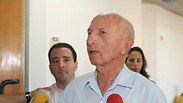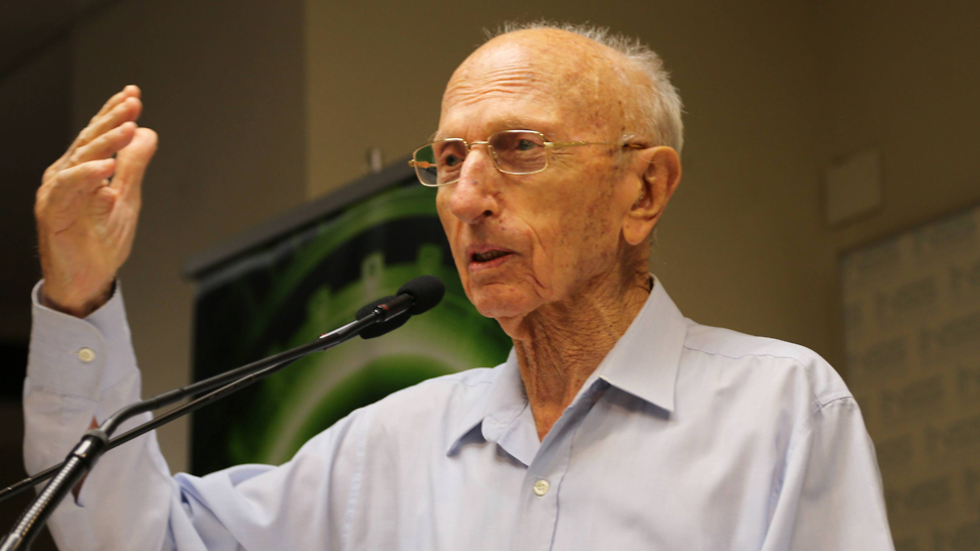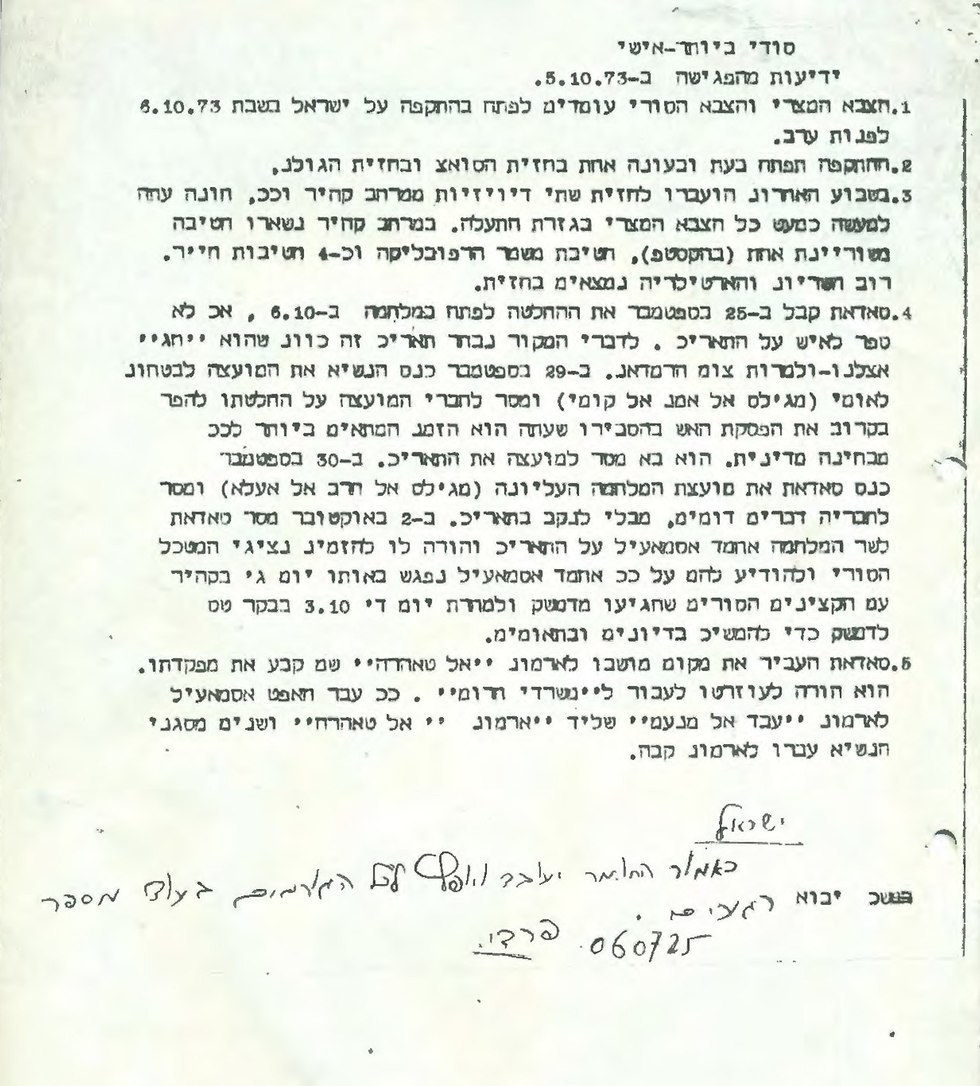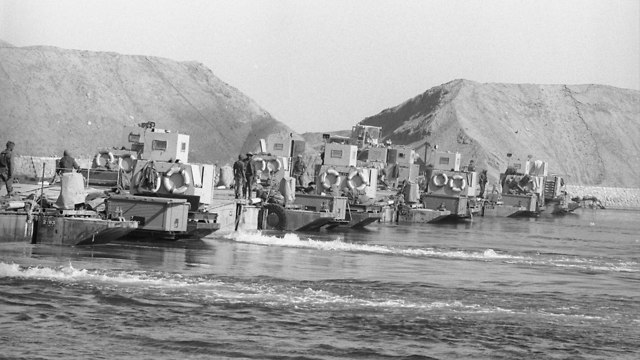
Telegram exposes Mossad chief's warnings about Yom Kippur War
State archives publish urgent telegram from Zvi Zamir to the military secretary of PM Golda Meir on the morning of the war which contained clear warning from Mossad's source, Nasser’s son-in-law, Ashraf Marwan, that war was imminent.
An urgent telegram about the 1973 Yom Kippur War was posted on the Israel State Archives website on Monday, which was sent by the former head of the Mossad, Zvi Zamir, warning that war was imminent and suggesting a plan to prevent it.
The IDF Directorate of Military Intelligence was certain on the eve of the fateful war that the chances of a military confrontation were slim, but Zamir's report at 4am on the morning of the attack, gave a clear warning that war was imminent.
The State Archives website posted the telegram the former Mossad chief sent to then prime minister Golda Meir's military secretary Yisrael Lior, revealing that the Mossad chief warned about a joint attack of the Syrian and Egyptian armies, who planned to launch an offensive against Israel on Saturday, October 6, 1973, in the late afternoon.
In addition, Zamir wrote that on September 25 the then Egyptian president Anwar Sadat had already taken the decision to embark on a war on the eve of Yom Kippur, but told no one about the planned date of the attack.
According to Zamir, his source, Ashraf Marwan—son-in-law of former Egyptian president Gamal Abdel Nasser—whose name he omitted, said Sadat deliberately selected the date knowing that Jews fast as they mark a day of repentance, despite the fast that it also coincided with Ramadan.
Then, on September 29, Sadat convened Egypt's National Security Council and informed the council members of his decision to violate the ceasefire agreement with Israel in the near future.
The president told his advisors that the most opportune time for the attack in his bid to regain control of the Sinai Peninsula, which Israel captured in the 1967 Six-Day War, was not in front of him. The next day Sadat informed the Egyprian Supreme Council without mentioning when exactly the planned attack would take place.
It was only on October 2, the former Mossad chief adds, that Sadat informed Egypt's minister of war, Ahmad Ismail, about the date of the attack, giving him a direct order to invite the representatives of the Syrian General Staff and inform them of the imminent war.
The same day, Ismail met with Syrian officers in Cairo, and was already on a flight heading to Damascus the following day.
Zamir, relying on the information provided by his agent Marwan, described the planned attack in detail, saying that it would open with a heavy artillery offensive, precipitating an aircraft bombardment on Sinai. Then, the crossing of the Suez Canal would commence, the telegram explains.
According to Marwan, Sadat thought he could surprise Israel. In his letter, the former Mossad chief wrote that his source estimated there was a "99% chance" of an attack on Yom Kippur.
Leaving a one percent margin of error, Marwan said that Sadat could still reverse his decision, even while "his finger is on the trigger."
At the end of the letter, Zamir writes that according to his source, the war could be thwarted by publishing media reports intended to signal to Egypt, its military command included, that the Israelis were aware of Sadat's plan and were prepared for it.
In his testimony before the Agranat Commission which was written in the aftermath of the war, former Chief of Staff Yigal Yadin asked the aid to Mossad Chief, Alfred (Freddie) Eini, why the Mossad did not pass on the urgent telegram to Golda Meir's military secretary.
Eini said in response that military intelligence received the information.
"There is a set of procedures dealing with information we receive. You need to transfer it to the prime minister, but it can take a few hours. I never thought to wake Lior at night," he said.
Eini stuck with protocol and said that he called the military secretary in the morning, but he was in a meeting.
"I left a message for him to call me as soon as he was out. Lior called before lunch and said that the cabinet held a meeting during which the prime minister heard that the Mossad chief had flown out of the country.
"During our conversation, Lior said it would have been better had I taken him out of the cabinet meeting rather than waiting for him to become available," Zamir's aid added.
Yadin then asked: Was there no fault in the procedure when a piece of information like this doesn't get to the prime minister and defense minister?
"Presenting the information to the prime minister was not intended for operational purposes; it seemed unnatural for me to wake Lior in the middle of the night. I would wake Lior to tell him of a possible terror attack, which lies within his jurisdiction," Eini replied.














